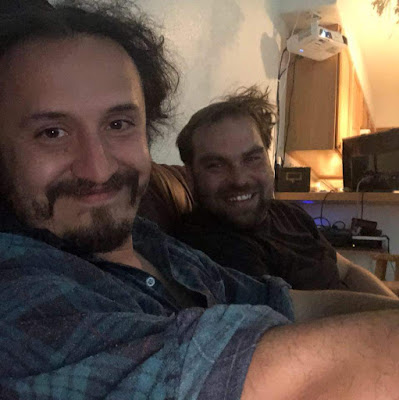Last week,
August 28 – September 1, the international gathering “Medellin +50: The Cry of the Poor, A Cry for Life” was held. It was
attended by around 200 people from 15 countries and 4 continents. It was a week
of commemorating the 50th anniversary of the Conference of Bishops of
Latin America which took place in Medellin in 1968. At that conference in 1968,
the Bishops defined the churches commitment to liberating the poor and
oppressed. Last week we explored what that commitment looks like today, 50
years later. What has changed? What has stayed the same? It was a gathering of
memory, of reflection, of analysis, of repentance, and of celebration.
 |
| This is the official poster of the event. |
The “Outcome
Documents” from 1968 discussed issues of Justice, Peace, Poverty, and a church
of and for the poor. During the conference we reflected on statements from the
1968 Outcome Documents such as:
"The Latin American church has a message for all people on this continent who "hunger and thirst after justice". The very God who creates us in His image and likeness, creates the "earth and all that is in it for the use of all the people and all nations, in such a way that created goods can reach all in a more just manner;" and gives them power to transform and perfect the world in solidarity. It is the same God who, in the fullness of time, sends his Son in the flesh, so that he might come to liberate everyone from the slavery to which sin has subjected them: hunger, misery, all oppression and ignorance, in a word, that injustice and hatred which have their origin in human selfishness."
The method of "See, Judge, Act," was utilized to organize the conference. One day was focused on the See. Observing the realities of Latin America in 1968 as well as the new realities 50 years later, we discussed the voices that were missing at the 1968 conference, particularly the voices of women, indigenous peoples and afro-descendants. Spaces were created to hear their perspectives on peace, justice, poverty, and the church's response.
 |
| Gloria Ulloa, the World Council of Churches President for Latin America, presenting on "Gender asymmetry crossed by marginalization and poverty". Photo by Katie |
 |
Pastor John Hernández of the Emmaus Lutheran Church in Medellin, speaking on the Lutheran World Federation's commitment to the "option for the poor" through debt cancellation advocacy and peace-building around the world.
Photo by Katie |
The next day we focused on the Judge part of the method. This is about taking a position on the observed facts.The increasing inequality in Latin America since 1968, the deepening poverty and the environmental destruction were judged as something the church needs to take a position on.
 |
| A member of the Living Rivers Movement (Movimiento Rios Vivos), telling the story of her community being displaced from their lands for the construction of a mega-dam. Photo by Katie |
And lastly, we focused on the Act. The Act aims to determine those attitudes that people should change in their lives, the criteria of judgement that must be transformed, the habits that are questioned by the Word of God and the actions that are to be developed.We listened to presentations from around Latin America of how different communities and organizations have been implementing the Outcome Documents from 1968. From theological training at the grassroots level, to peace-building, human rights defense and international solidarity work. We then dreamt and made plans for how to continue and further these actions, responding to the new realities identified at the conference.
 |
| Singing together to get started back after a lunch break. Photo by Katie |
 |
| Closing ceremonies, gift giving to the hosts and organizers of the conference, and celebrating together. Photo by Katie |




















































